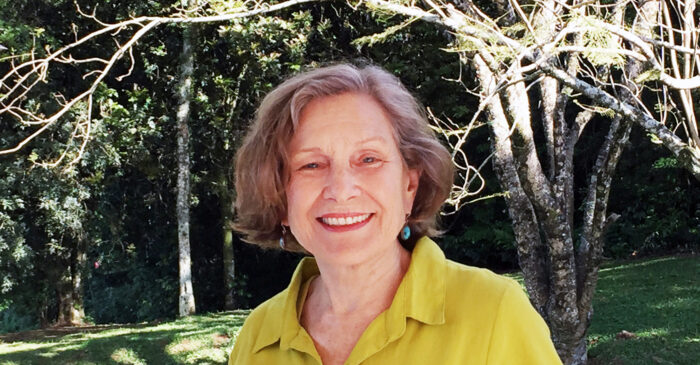Chagdud Khadro
Chagdud Khadro

Chagdud Khadro
- AdvisorsAdvisor
Chagdud Khadro is on the board of Middle Way School and aspires to coordinate with Noa Jones, using her modules for training children in Buddhist concepts and values, for a kids’ camp, first at Chagdud Gonpa/Khadro Ling, then hopefully to be replicated in other South American centers. Khadro’s 40 years’ experience of living in Buddhist centers has attuned her to both maintenance and legacy of such communities. As a KF advisor, Khadro aspires not only to rejoice in such far-reaching educational programs but to be a strong and informed support for them.
Chagdud Khadro grew up in Texas and Connecticut. She spent two years in the Peace Corps teaching in a village elementary school in Sierra Leone, and seven years in Boston and New York, where she worked as researcher in a Cambridge consulting firm, and then as a fact checker for various magazines including The New Yorker, Harper’s, and Audubon. Money from a freelance article paid for a ticket to Asia, which began her Buddhist journey. She met Chagdud Tulku in Nepal in March, 1978, and married him in California 18 months later. In Rinpoche’s sangha she served as a cook, housekeeper, and events organizer, and later as the managing editor of Padma Publishing. He ordained her as a lama in 1997, and she travels widely to teach p’howa. Since his death in 2002, she has been the spiritual director of Chagdud centers in South America. She resides at Khadro Ling in southern Brazil.
In 1978, when Khyentse Rinpoche was among the young tulkus attending Kyabje Dilgo Khyentse’s empowerments, without knowing who he was, I stopped him on the steps of the monastery and took his photo—unsmiling, gaze unwavering, expression unreadable. About 15 years later, at Chagdud Rinpoche’s request, he came to Rigdzin Ling in California and bestowed a Sera Khandro empowerment into an aspect of Tara. In 2000 he came to Khadro Ling and gave teachings on the Bodhicharyavatara. Since Chagdud Rinpoche’s death in 2002, his kindness, offered in many subtle ways, has been unceasing and unrepayable. We would not have accomplished the building and consecration of our Zangdok Palri without his insistence that artists and lamas travel to Brazil.